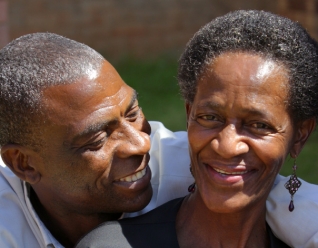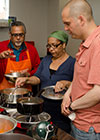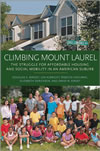Senior/Assisted Living
At least one of every 10 Americans age 65 and older lives below the poverty line, although new formulas indicate that rate is much higher: with some estimates saying almost 20 percent of the nation’s 40 million seniors are low-income.

Minorities are particularly vulnerable as they age. The senior poverty rate for African Americans and Latinos is 24 percent and 19 percent respectively. When gender is combined with race, the economic conditions look even more bleak. The poverty rate for elderly African American women over age 75 increases to 29 percent and for elderly Latinos to 27 percent. The poverty rate for elderly white women is 12 percent.
For the elderly poor, housing choice is extremely limited. Assisted living — the housing of choice for middle- and upper-income seniors — is rarely an option for the poor. But Fair Share Housing Development is at the forefront of the movement to change this situation. We are currently a developing an affordable housing project for seniors in Mount Laurel with on-site social services, health, recreation and nutrition programs. Our goal is to enable low-income seniors to live independently as long as they are physically, emotionally and mentally able to do without nursing home case.
In Camden, at our Northgate II development, our affiliate nonprofit, Fair Share Support Services (FSSS), operates a nationally recognized pilot Wellness Program that seeks to dramatically improve the health outcomes of our elderly and disabled residents. Our Wellness Program, the first of its type in an affordable housing project, is working to reduce hospital visits, especially the use of emergency rooms as “primary care offices,” and monitors/reduces re-admissions.
Fair Share Support Services also provides our seniors with health literacy training to help them communicate more effectively with health professionals as well as family caretakers and social services support staff. Other program offerings include an Assisted Living Program, a congregate lunch program, healthy cooking classes, massage therapy and on-site exercise classes to help improve strength, flexibility and endurance. Northgate II residents who suffer from chronic health problems (such as hypertension, asthma, diabetes, obesity, heart disease) have also participated in a series of peer-led workshops that has helped them learn how to better manage these conditions — so they can feel better and avoid unnecessary trips to the hospital; because many of our residents are Hispanic, we conduct some of these workshops in Spanish. The goal of the Wellness Program is to help our seniors experience less pain, fatigue and isolation while feeling more confident, informed and in control of their health.



